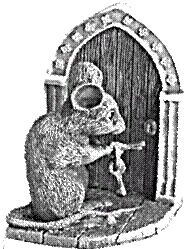“The end of all things is at hand; be ye therefore sober and watch unto prayer.”
In the name of God, Father, Son and Holy Ghost. Amen +
Here on this evening of the feast of the ascension it is important that we understand our bereavement of the Son of God.
When Christ withdrew into heaven, the disciples must have been left in a state of joyous sorrow. They had lost Him once to death, and now again, to glory. Surely they must have known their cups to be full in those 40 days after the Resurrection. To wake every morning with the risen Christ among them, to have the revelation of God in human person, The Son, present with them, their friend and their hope.
But when Christ withdrew, how could they not be bereft, even with angels assuring them of His return, even with the promise of the coming of a comforter?
Some of us may know what it is to loose our connection to one who, for us, holds the Wisdom, a spiritual Father, mother, mentor or even a friend. When our path is no longer illumined by their presence, their teaching or their personal encouragement to us—we miss them sorely and wonder how we will know the light of wisdom in our hearts again.
And so how can this not be also with the disciples who beheld the human face of God?
Between the feasts of the Ascension and Pentecost marks this place of absence, and it is good if we pause here, for as Father Snook said in his sermon last Thursday, this place of pain is the birth place of faith. We do not need the coming of a comforter unless we know we are bereft God.
I quote a sermon from Father Crouse:
What does the Ascension mean? Remember that incident in the Easter garden, when Mary Magdalene longs to embrace the risen Lord? And he says "Touch me not, for I am not yet ascended to the Father." (John 20.17) The point is this: those who follow him must be weaned from earthly hopes and expectations. The earthly, the fleshly, must be transformed, transfigured, so that we see its true reality as spiritual. In that sense, he must depart from us, and it is expedient that he go away. "The flesh profiteth nothing," he tells us, "the words I speak unto you, they are spirit, and they are life." (John 6.63) In the travail of earthly life, we must give birth to faith, a faith which knows God as Spirit. And thus he returns to us in the power of the Spirit, and that is Pentecost.
With the coming of the Holy Spirit begins a new order.
In this empty space I know my poverty. In the light of the glory of his ascension, I can know how insignificant I am, relinquishing what I have known by natural intellect. This is the sobriety, I pray for, that I might watch unto prayer. Amen+

